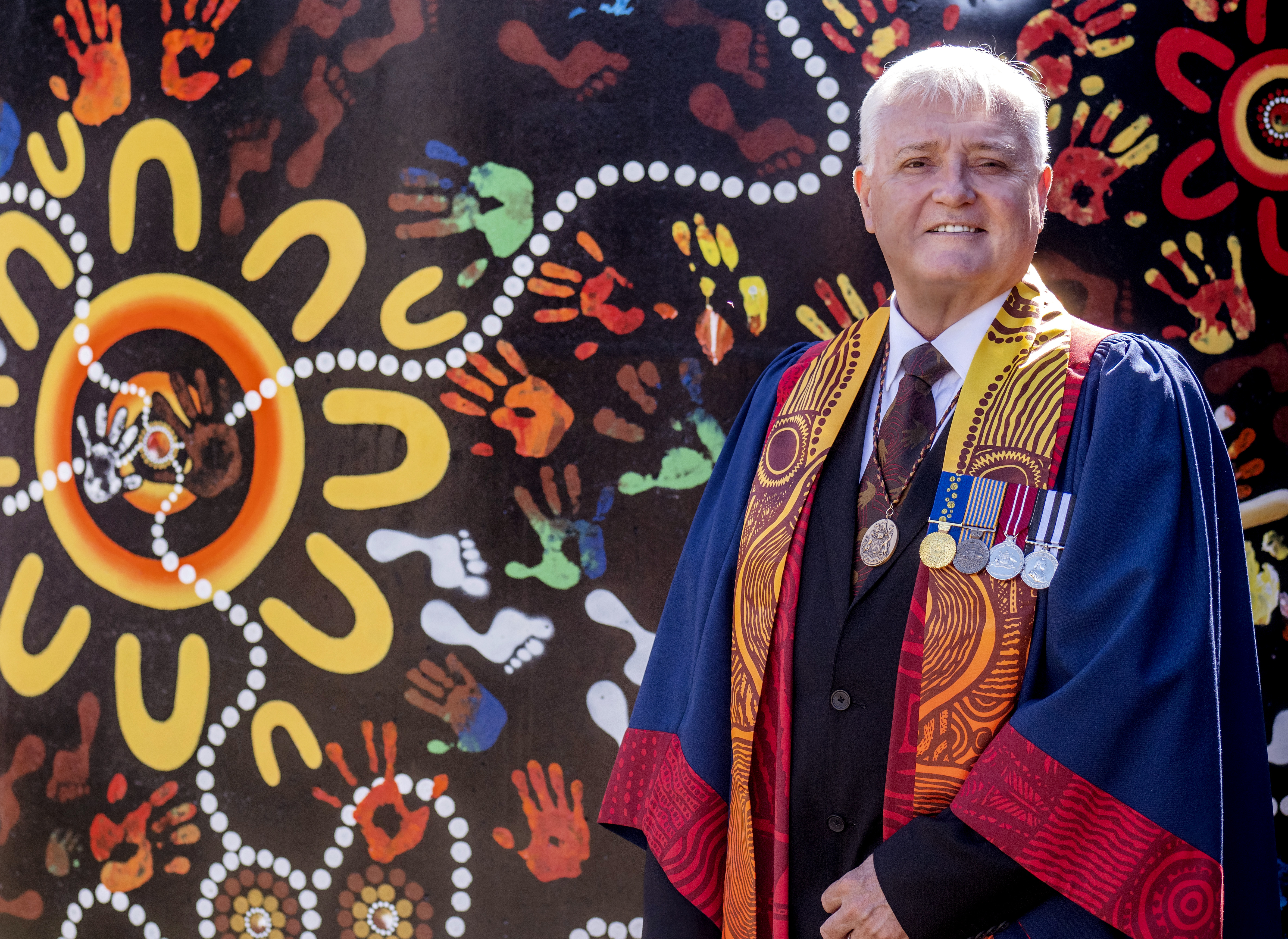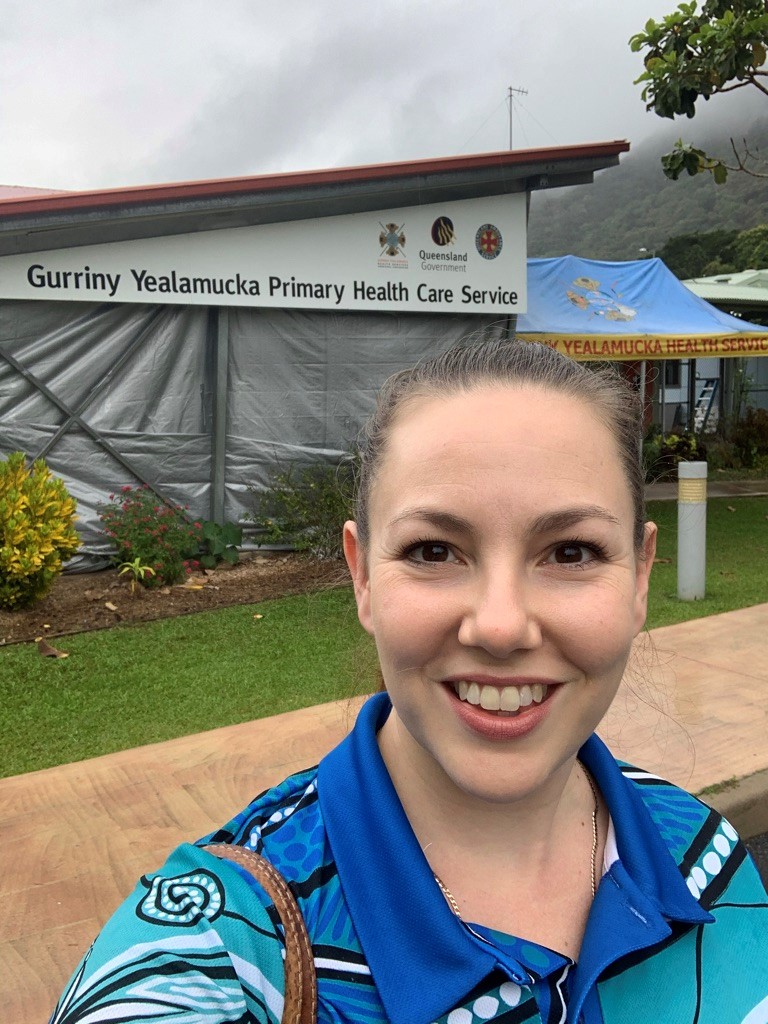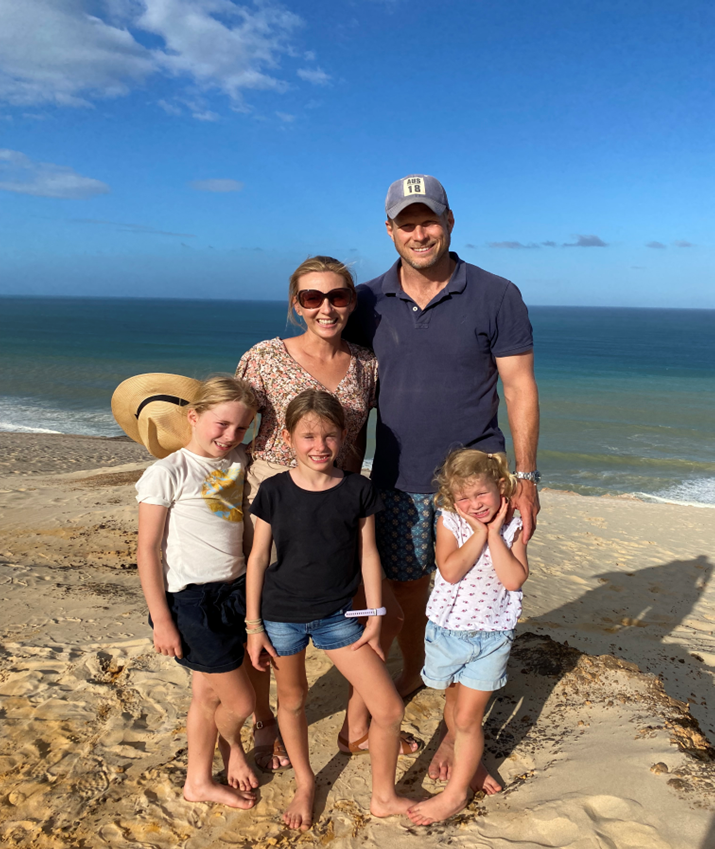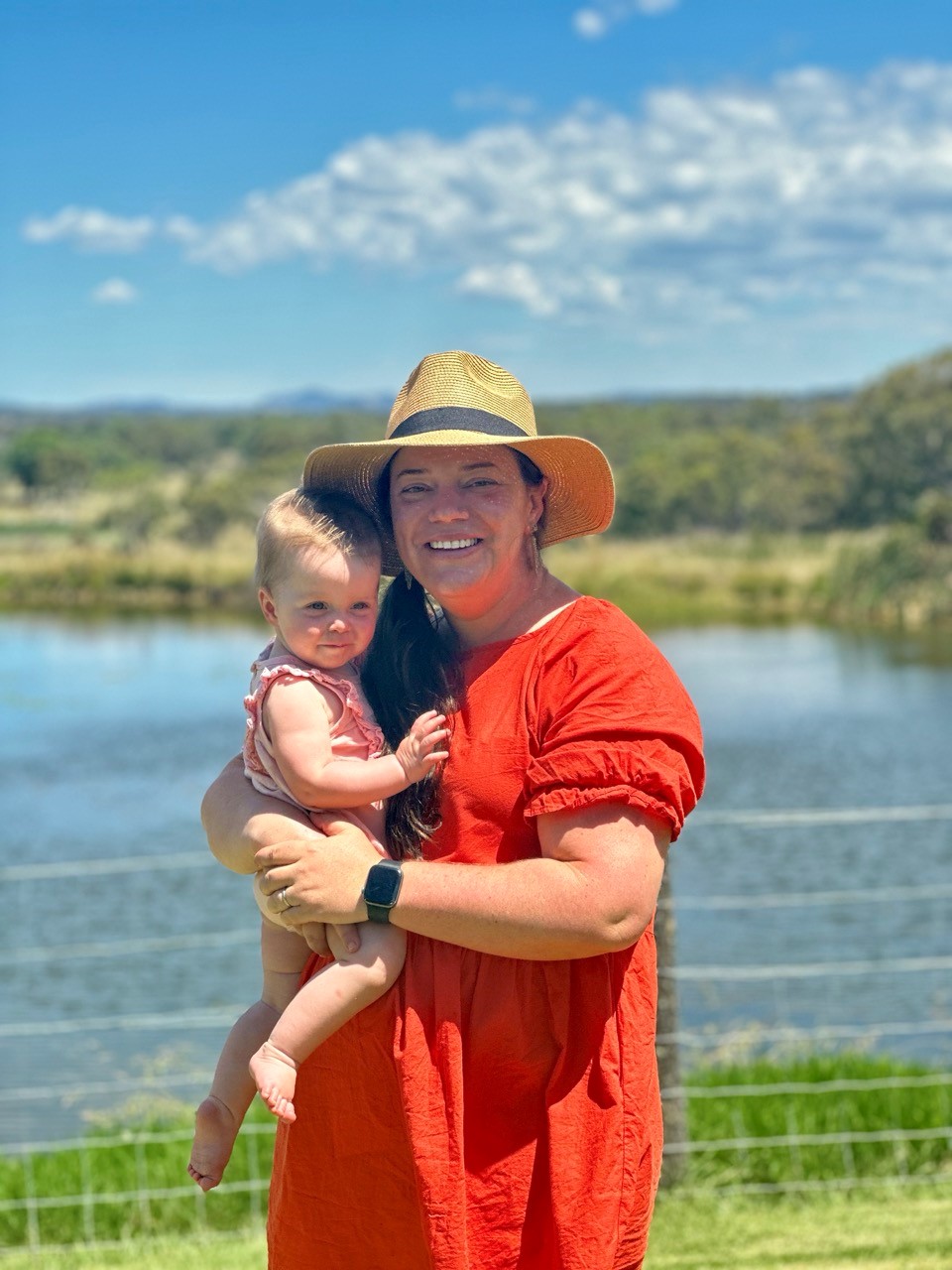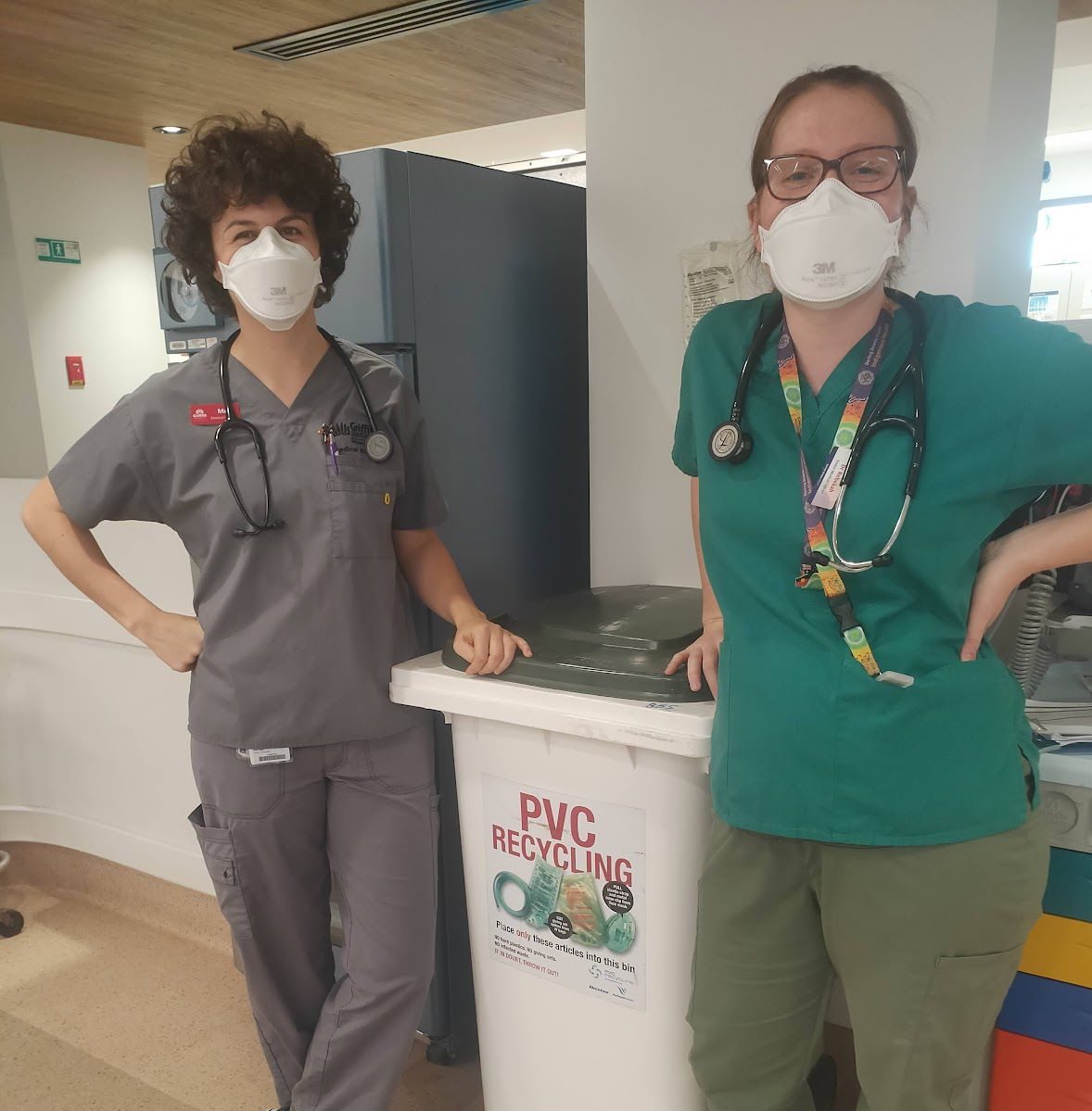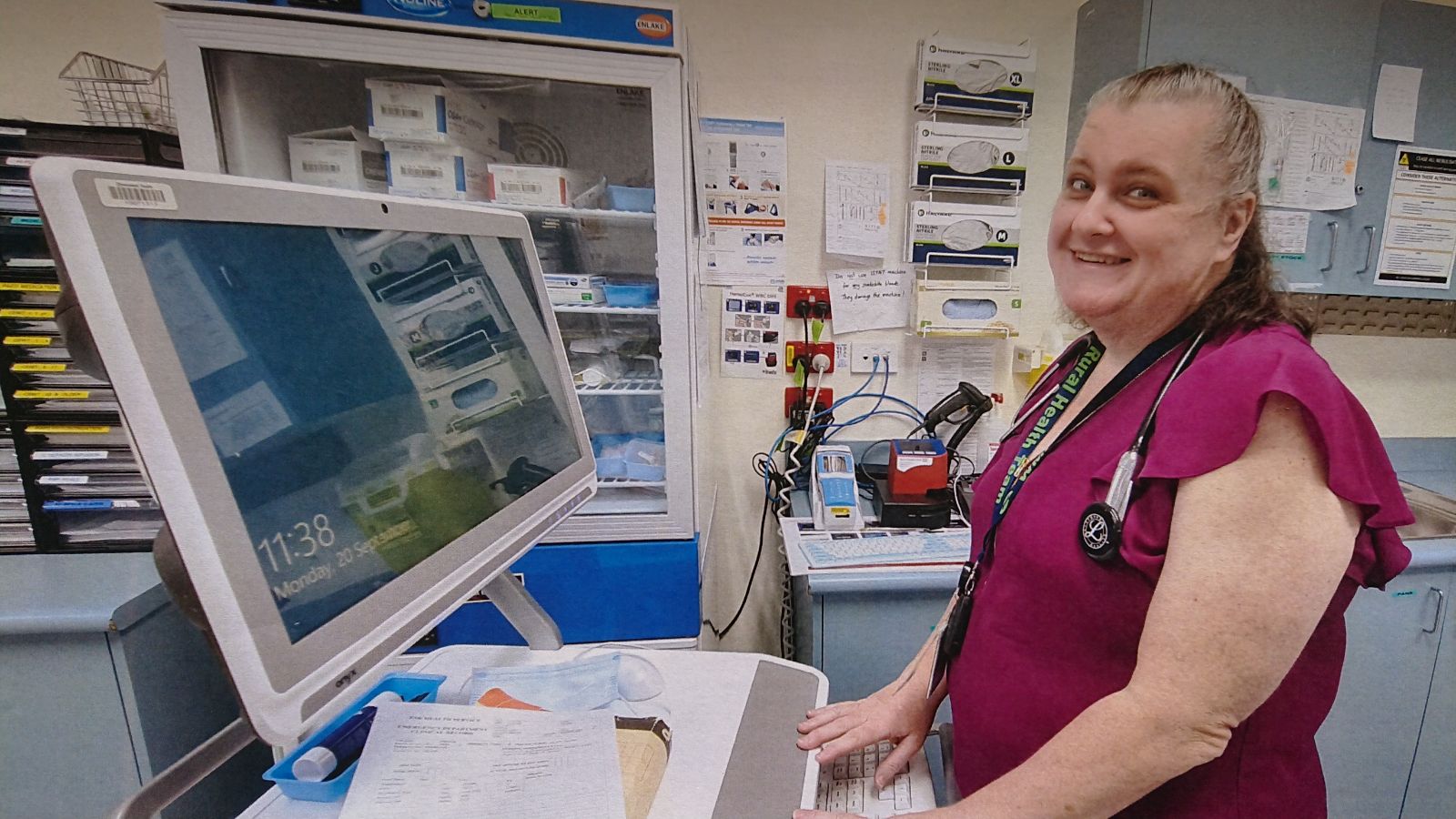Practice Principal & Adjunct Professor | Taribelang Bunda Country (Bundaberg)
I am a Kamilaroi man of the north-west of NSW, with a story of the “road less travelled”. I was born in Gunnedah where my Aboriginal roots lay, strongly influenced by the journey of my grandmother who was a strong and community minded lady. She led a life of hiding her identity as an Aboriginal woman due to the government policies and societal influences of the day. It was not until later in my life that some of the truths were spoken, allowing me to explore my ancestral background. Sadly, I am a result of the stolen generation by way of the hidden stories and lost connections that were put into place to protect us individually and as a family from this dark part of Australian history. As such I remain on a journey of discovery which will sadly never be complete as all those with the ‘truth’ have since passed. I no longer have the ability to make connections which have been lost amidst this journey. Nevertheless, I have a strong and proud spiritual connection to my ancestry and hold this true to my being and am recreating connections with my countrymen and women. Community Elders are supporting my journey to learn language and cultural aspects to help guide my role in Aboriginal leadership responsibilities and as a parent. I want to share my culture with my daughter who is also on a quest of discovery. My grandmother remains a strong influence into my journey and truth…
My earliest memories include listening to Uncle Jimmy Little singing “The Royal Telephone” on my grandmother’s radiogram. Later in life I would have the opportunity of meeting Uncle Jim and going on a journey with him as we established the Jimmy Little Foundation and Uncle Jimmy Thumbs Up Program. This journey afforded me many learnings and wisdom through his gentle guidance and advice as a mentor and a wonderful friend who was much like a grandfather to me. I will always remember his wise words and the lessons he shared with me.
I have been influenced by strong Aboriginal Elders who have embraced both significant challenges and attracted intense personal insult and conflict as a result of standing strong through dark times in Australian history. I am better for the wisdom and strength they have shared and used to guide my journey. It is my responsibility to honour this by continuing to share their stories and their commitment to strengthening our Aboriginal culture and making Australia a safer place for First Nations people, indeed for ALL Australians and this is the strength of this journey, everyone wins. What a wonderful legacy!
I left school aged 15 having completed year 10 education and joined the Royal Australian Navy, later becoming an ambulance officer, intensive care paramedic, clinical supervisor, manager and educator. I have worked from Central Sydney to Central Australia and drawing upon this rich experience was one of the driving forces for my entry into rural generalism. Going to medical school at 35yrs of age was a challenge, especially whilst supporting a young daughter and running a first aid business to pay the bills. I had the chance to be part of many “firsts” through JCU, being part of the establishment of the medical student club, rural health club and Indigenous medical student supports. I joined the AMA Queensland Board, RDAQ Board, and was Chair of the National Rural Health Club (representing 5000 health students nationally) in my final year of medical school. During medical school I travelled the Queensland outback with Dr Bill Glasson, witnessing and developing a passion for the “art of medicine” through the gift of engaging with every patient and their unique journey in a meaningful way. This great skill he shared with me on this journey formed the basis of the medicine I continue to practice each day.
Following internship in Townsville I went rural under the mentorship of Professor Bruce Chater in Theodore, then solo as Medical Superintendent with Right to Private Practice in my third year out of medical school at Eidsvold. During this time, I completed my FRACGP through RVTS and was instrumental in establishing the RACGP National Faculty of Aboriginal and Torres Strait Islander Health (now RACGP Aboriginal and Torres Strait Islander Health) as a registrar. I completed my FARGP and Rural Generalist qualification through the Queensland Rural Generalist Pathway with advanced skills in Indigenous Health. Establishing the RACGP Aboriginal and Torres Strait Islander Health as a registrar was a challenge, but I was met with great support from within the RACGP.
I saw the evolution of our RACGP ceremonial gown to both embed design that acknowledges the traditional lands on which every GP Fellow practices our art of medicine, but also the colourful sashes that acknowledge our First Nations Fellows. I am most proud of the opportunity to have been instrumental in these achievements, but not alone and not without significant support from Elders and mentors guiding the way. I would like to make special mention of Dr Chris Mitchell, Past President of the RACGP and Dr Mukesh Haikerwal, Past President of AMA and Past Chair of the World Medical Association, who have both invested much energy into supporting me in our combined quests. Mentors then, who still to this day continue to guide and support me.
I subsequently established my own private practice, with my wife as practice manager, on the rural outskirts of Bundaberg specialising in First Nations and Veterans Health. I continue to sit on various Boards which have included the Prime Ministers Advisory Council on Veteran Mental Health and most recently the newly established National Department of Veteran Affairs GP Advisory Group. I also Co-Chair the RACMA Indigenous Health Policy and Advocacy Sub Committee driving RACMA’s position and response to First Nations Australian and Māori cultural respect and inclusion within the College. More recently I have expanded on my leadership roles as Professor at CQU and UQ in a partnership program between both universities in the Regional Medical Pathway (RMP) which aims to recruit regional school leavers into a Bachelor of Medical Science with a guaranteed path into the Doctorate of Medicine program at UQ. The program is studied regionally in Rockhampton or Bundaberg with pathways of internship and specialist training which is also regional (hopefully Rural Generalist training!). It is all aimed at growing a strong future regional, rural and remote workforce. And for those that might consider careers in the metropolitan areas as a postgrad, it creates a greater understanding, appreciation, and compassion for those working rurally, helping to build resilience into the system. I also lead the recruitment and mentoring for the First Nations students through this program.
It is such an honour to have these opportunities which weren’t lost on me – the boy who left school at aged 15, who now holds professorial appointments at three universities. It demonstrates the value of following your dreams and believing in yourself, or sometimes believing in those that might believe in you more than you do at times. After all, we all have self-doubt at times and thus is the value of my mentors throughout my career.
One of the greatest lessons I have learned in life is the value of mentors. They have featured strongly in my story at every twist and turn.
One of the greatest challenges I have experienced, is the leadership roles that are thrust on us throughout life, especially in respect of our community roles as health professionals. This has become a stronger influence for me since starting my medical career from day one as one of the first five indigenous medical students at JCU, the first new medical school in Australia for 20 years.
As Rural Generalists there exists so many opportunities for us to engage in leadership roles within our communities, profession and far wider. There is an inherent strength I have witnessed in those who embrace a career in rural generalism, the challenges of often working alone and under extreme stress, stretching our comfort boundaries to the limit, whilst seeking support through unique and innovative measures. This often means fighting for and establishing resources where these have not previously existed, about building and leading resilience within our teams and communities and fighting for the profession in a far wider perspective. All whilst building collegiate relationships to call upon in times of need and to return the favour as needed. Rural generalism is so much more than attaining the peak of our medical skills, it is about embracing being the best we can, looking after ourselves, our family, communities, and profession. I am so proud to belong to such a strong and compassionate band of leaders who embrace the unique challenges that each day brings, stretching their boundaries but remaining true to the common cause.
So as we reflect on the value of our elders we should consider the path we are on ourselves to becoming elders and the opportunity to gather wisdom along the way and develop these skills.
I would like to honour all those mentors who have shared their wisdom and compassion with me, too many to mention here but they are all greatly respected and never forgotten in my heart. My Elders are shaping my evolving role as an Elder, even though this is a responsibility I am still coming to terms with myself in the transition, something that sneaks up on you it would seem.
Let’s embrace our Elders, those who share their wisdom and guide our journey ensuring we practice and hone that which is shared with us so that we continue to build resilience and compassion within our own families, profession, and communities. And celebrate your successes as it is from these messages that you promote and inspire others to achieve also.


